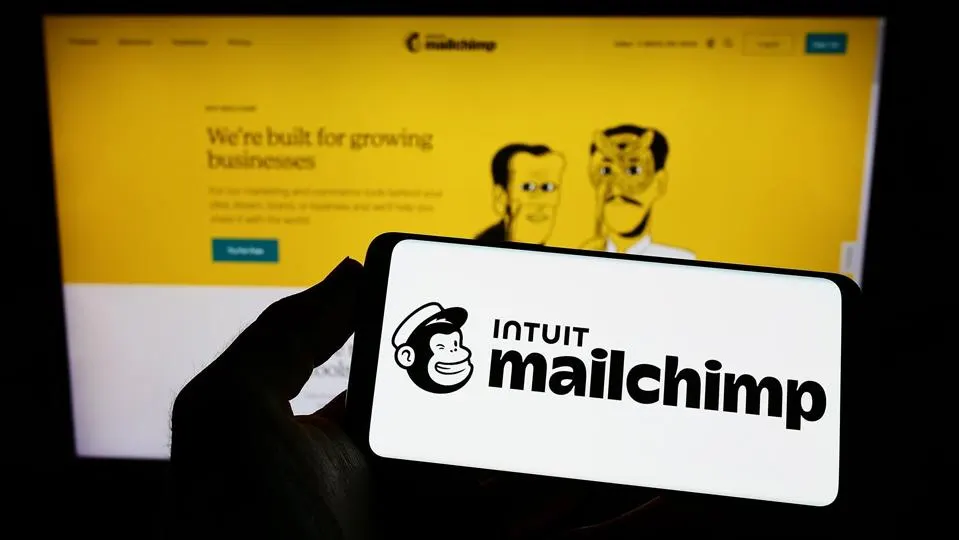Why Every Company Needs A Data Strategy
2 July 2021
Data matters to any company, regardless of size, sector or type. In fact, data is one of your biggest business assets, alongside your products, services, intellectual property, and people. But to get the most out of data, it’s vital you have a data strategy in place.

Technology is developing so fast these days, many businesses – particularly smaller and mid-sized companies – feel like they’re struggling to keep up. Sometimes, this leads the company to dive eagerly into new data opportunities, investing in new technologies and fancy analytics that aren’t right for their business. And sometimes, it leads to inaction, or a compulsion to bury heads in the sand and ignore the data revolution. Either way, these businesses don’t fully realize the possibilities of data.
That’s why you need a data strategy, to set out how you want to use data in practice, clarify your top data priorities, and chart a course for reaching your goals – including what kind of data you need, where you’ll source that data, how you’ll store and analyze the data, and so on. The data strategy helps you drill down to your core business needs and create an achievable plan for the future.
Relating your data strategy to your business strategy
Creating a data strategy isn’t a standalone activity; it must be driven by your overarching business strategy. Therefore, a critical starting point for any data strategy is the business’s strategic objectives. To put it another way, what is your business trying to achieve and how can data help you get there?
After all, what’s the point of a data strategy – indeed, what’s the point of data in general – if it doesn’t help you achieve your organizational goals? So before you charge ahead to your data strategy, review your business strategy first and then develop your data strategy (here is how you develop a data strategy, including a data strategy template).
How to use data in your business
So how can data help you achieve your organizational objectives and deliver your business strategy? There are five key ways businesses are using data:
- To inform decision making
- To understand customers and trends
- To provide smarter services and products
- To improve internal operations
- To create additional revenue
Let’s look at each area in turn.
Making data-driven business decisions
Improving decision making is one of the top priorities for most of the clients I work with. And with good reason – from developing new products to increasing revenue to hiring the right talent, it’s all about making the best decisions for your business. And what fuels better decision making? Data.
Data can be used to help every business function, department and team make better decisions. For example, in HR, data is being used to calculate the likelihood of employees leaving the company, which helps HR and managers better engage key talent and reduce employee turnover.
Here’s a really simple example of data-driven decision making in action. Thanks to data, US restaurant chain Arby’s discovered that its renovated restaurants made more money than its un-renovated restaurants. As a result, the chain decided to drastically ramp up its remodeling programme.
Understanding customers and trends
Identifying market trends and understanding customers’ needs is a key driving factor of most sales and marketing activity. After all, the more you understand your customers, the better you can serve them.
In the past, this activity used to be based on which customers previously bought which products or services, but now companies are increasingly becoming more predictive –anticipating what customers will want in the future. One classic example of this is Netflix recommending what you should binge-watch next, based on your viewing preferences.
Delivering smarter products and services
One of the big benefits of knowing more about your customers and markets is being able to give them exactly what they want: specifically, smarter products and services that react to each user’s unique needs and habits.
The Nest smart thermostat is an excellent example of this. These incredible devices monitor activity in your home and detect behavior patterns. Then, based on what it knows about how you use your home, the thermostat dynamically adjusts the temperate to keep the home comfortable, without wasting energy where it’s not needed.
This overall trend towards smarter products and services is all possible thanks to advancing computing power (the average phone packs the kind of computing power that would have been unimaginable 15 years ago), and the connectivity offered by modern devices and gadgets (otherwise known as the Internet of Things). Expect this trend to continue as we become increasingly inseparable from our smart devices!
Improving internal operations
The ability to optimize business processes, streamline operations and run the company in a more efficient, cost-effective manner is an attractive prospect for any business. Thanks to data, it’s easier than ever to make improvements and generate efficiencies.
For example, in manufacturing or industrial businesses, production line machines, vehicles, and tools can be made ‘smart,’ meaning they can be connected to each other and continuously reporting on their status. This, in turn, means every aspect of the manufacturing process can be monitored and tweaked for optimal performance. It can also help to reduce costly machine downtime, by anticipating when parts need replacing before they break down. This is known as predictive maintenance.
In other sectors, companies are using data to optimize stock control (such as automatically replenishing stock when it hits a certain threshold), anticipate and prevent service outages, optimize delivery routes, automate repetitive and mundane processes, and much more.
When you use data to make smarter decisions, optimize business process and so on, it’s likely to have a positive effect on the bottom line. But this link between data and the bottom line can also be much more direct. In other words, data can be monetized to increase revenue and create a new income stream.
This monetization may take many forms. For example, it may involve bringing new, data-driven products or services to market. Or it may involve selling data to customers through optimized services (think of Facebook’s data-driven advertising offering). And sometimes, data can even increase the value of the company (think of Microsoft’s acquisition of LinkedIn).
As well as making money, data can also save your business money. One great example of this lies in fraud detection. Data-driven fraud detection technology, which is used by Amex and other credit card providers, helps to identify and prevent fraudulent transactions in real time, saving billions of dollars.
Defining the strategic data use cases for your business
Once you have identified the key strategic use cases for your organization, you can define them further by using this Data Use Case Template.
If you don’t already have a data strategy, it’s not too late to create one for 2019. (And if you do already have a data strategy, now is the ideal time to review and update it for 2019.)
Related Articles
How Generative AI Will Change The Job Of Real Estate Agents
Real estate agents and other professionals in their industry are in the business of selling good old-fashioned solid bricks and mortar.[...]
How BCG Is Revolutionizing Consulting With AI: A Case Study
In a world where AI is transforming every sector, companies are constantly seeking ways to gain a competitive edge.[...]
The Biggest Education Trends Of The Next 10 Years
Education is changing rapidly. In today’s fast-moving world, a model where we graduate in our youth prepared for a lifelong career is simply no longer valid.[...]
Is This AI’s IPhone Moment?
Today, the term “iPhone moment” is frequently used to refer to a technology breaking through into the mainstream.[...]
AI Politicians: The Future Of Democracy Or A Threat To Freedom?
2024 is a big year for democracy, with over two billion of us voting in elections across the US, India, the EU, the UK and many other countries and territories.[...]
How Mailchimp Hopes To Build The End-To-End AI Solution For SMEs
I often write about AI's potential to transform any business. Yet, a question I frequently get from small businesses is, "Does that really include us?"[...]
Sign up to Stay in Touch!
Bernard Marr is a world-renowned futurist, influencer and thought leader in the fields of business and technology, with a passion for using technology for the good of humanity.
He is a best-selling author of over 20 books, writes a regular column for Forbes and advises and coaches many of the world’s best-known organisations.
He has a combined following of 4 million people across his social media channels and newsletters and was ranked by LinkedIn as one of the top 5 business influencers in the world.
Bernard’s latest book is ‘Generative AI in Practice’.










Social Media